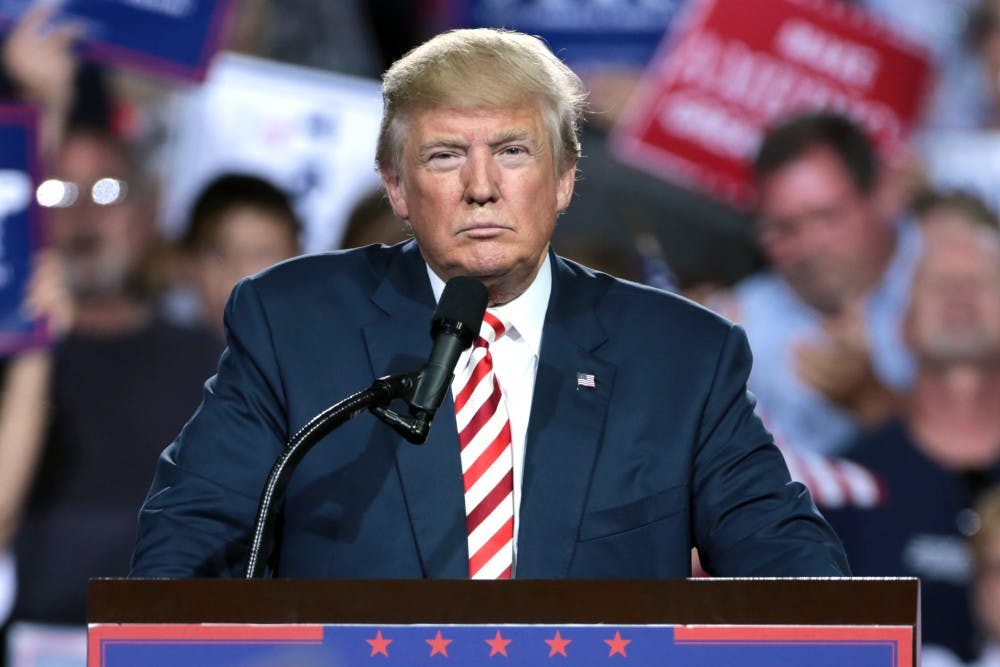Donald Trump’s presidency can often feel like an inevitable catastrophe that gets easier and easier to become desensitized to and disengaged from. Trump has successfully deconstructed and rendered irrelevant the traditional neoliberal niceties that have conveniently shielded this country from confronting its history, and continued practice, of structural violence: Trump is an indecent man who has lived an indecent life, and runs the country in accordance with this indecency — yet, unlike his predecessors, he makes no attempt to hide his amorality, and we make no attempt to remain shocked and horrified by his cruelty.
The ongoing detention of innumerable migrant children, women, and men has been perhaps the most concrete manifestation of the president’s ruthless disregard of basic human empathy, due process, and the rule of law.
Nonetheless, most Americans go about their daily lives, enjoying the fruits of a relatively healthy economy, while our government cages children in harrowingly overcrowded concentration camps and denies them basic nutrition and legal rights. Similarly, at Princeton, as this atrocity has endured, we have gone about our quotidian business with insular, self-satisfied ease, only occasionally stopping to notionally condemn the abuse of migrants.
I have tried to consciously break out of this everyday routine of political complacency through writing. Last summer, for example, I wrote two articles about the Trump administration’s family separation policy. I was proud of these articles, but I now realize how insufficient and microscopic my contribution — which may be too strong of a word — to the leftist “Resistance” has been.
As we start the new school year, many of us at Princeton — an institution beautifully yet dangerously removed from the terrors of the wider world — continue to fiercely oppose Trump’s racist xenophobia. But actionless ideological opposition is politically meaningless — or, at the very least, embarrassingly inadequate.
Maybe we all should be at the Southern border protesting this state-sanctioned cruelty, or maybe we should all dedicate our lives, at least temporarily, to combatting one of the most brazen, explicit acts of state violence in recent memory. But if we are being honest with ourselves, we know that we will likely be unable, and perhaps unwilling, to perform any significant level of courageous, substantive resistance.
Part of the reason for this is out of our control. Authoritarianism, the primary political philosophy of Donald Trump, seeks to, and almost always does, distort and destroy moral and physical realities.
As Masha Gessen wrote in The New Yorker, the notion of an American “concentration camp” — a term New York Representative Alexandria Ocasio-Cortez employed in June to describe the government’s migrant-detention facilities — is fundamentally “unimaginable” and therefore easy to cognitively dismiss. According to Gessen, given the “mythologized” contextualization of world-historical evils like the Nazi Holocaust and the Soviet Gulags — a contextualization that renders these atrocities so unconscionable that they become inconceivable, and other atrocities become degraded in severity by comparison — concentration camps in the land of the free are “something that can’t happen here.”

The only problem is that something — the detention of migrants in concentration camps — is indeed happening here, and most of us are doing nothing about it.
What does that mean?
Does it prove we don’t care? Surely, some of us do — or like to think we do. Does it prove we are, on some semi-conscious level, okay with, if not approving of, it? Probably not. Or does it prove that we have become so numb and so depleted that we simply don’t have the moral bandwidth and political energy to confront this evil? Bingo.
Living under Trumpian rule has felt like a tormenting, delirious psychosis in which we believe things could not get any more despicable and horrific until they inevitably do. As these horrors multiply, they become diluted and uninteresting, sometimes to the point at which their simple acknowledgment and problematization seem unnecessary, if not redundant.

We have become hardened not necessarily because we now more easily digest the contents of Trump’s violations; rather, we have become desensitized and unaffected, if not pacified, by the incomprehensibility of it all. But of course, just because something is unbelievable doesn’t make it any less real or any less urgent to confront. Just because it is unbelievable that our government is throwing children in cages doesn’t make these children any less brutalized.
Maybe we all should be camping out and demonstrating at the Southern border for the foreseeable future. But how can we even begin to contemplate radical resistance if we can’t even acknowledge the ghastly reality afoot?
Samuel Aftel is a senior from East Northport, N.Y. He can be reached at saftel@princeton.edu.








